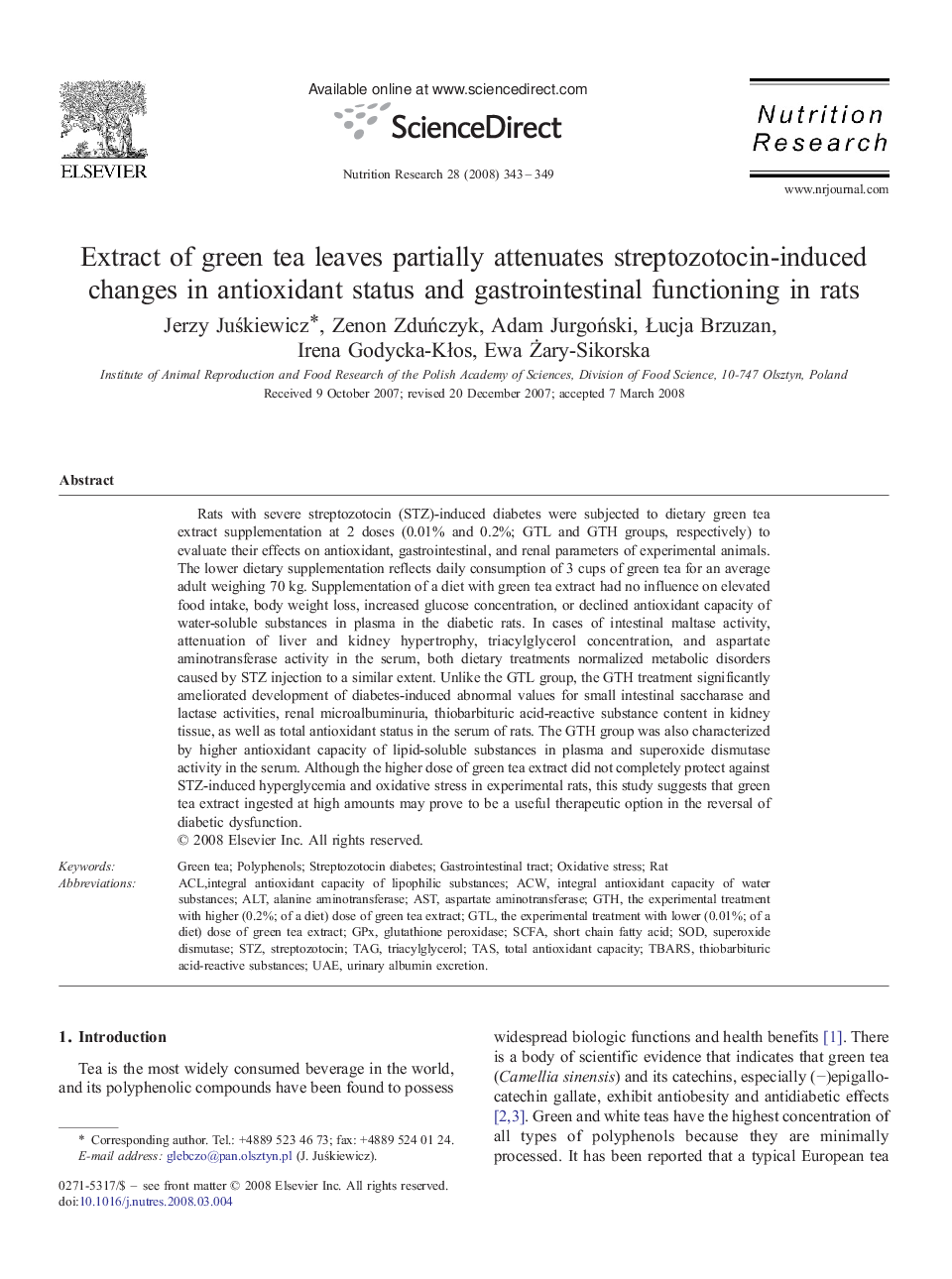| Article ID | Journal | Published Year | Pages | File Type |
|---|---|---|---|---|
| 2809710 | Nutrition Research | 2008 | 7 Pages |
Rats with severe streptozotocin (STZ)-induced diabetes were subjected to dietary green tea extract supplementation at 2 doses (0.01% and 0.2%; GTL and GTH groups, respectively) to evaluate their effects on antioxidant, gastrointestinal, and renal parameters of experimental animals. The lower dietary supplementation reflects daily consumption of 3 cups of green tea for an average adult weighing 70 kg. Supplementation of a diet with green tea extract had no influence on elevated food intake, body weight loss, increased glucose concentration, or declined antioxidant capacity of water-soluble substances in plasma in the diabetic rats. In cases of intestinal maltase activity, attenuation of liver and kidney hypertrophy, triacylglycerol concentration, and aspartate aminotransferase activity in the serum, both dietary treatments normalized metabolic disorders caused by STZ injection to a similar extent. Unlike the GTL group, the GTH treatment significantly ameliorated development of diabetes-induced abnormal values for small intestinal saccharase and lactase activities, renal microalbuminuria, thiobarbituric acid-reactive substance content in kidney tissue, as well as total antioxidant status in the serum of rats. The GTH group was also characterized by higher antioxidant capacity of lipid-soluble substances in plasma and superoxide dismutase activity in the serum. Although the higher dose of green tea extract did not completely protect against STZ-induced hyperglycemia and oxidative stress in experimental rats, this study suggests that green tea extract ingested at high amounts may prove to be a useful therapeutic option in the reversal of diabetic dysfunction.
